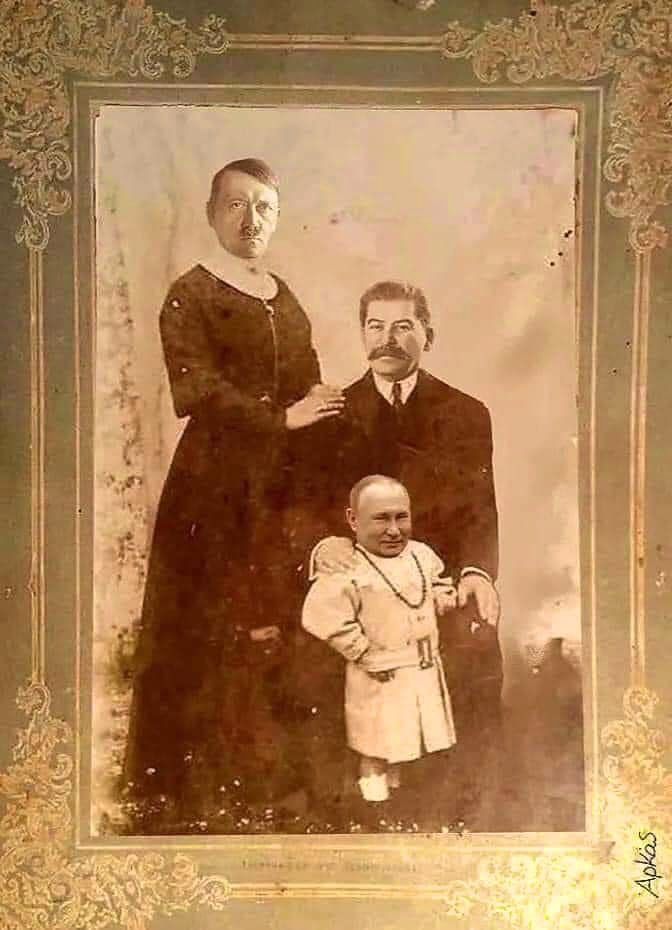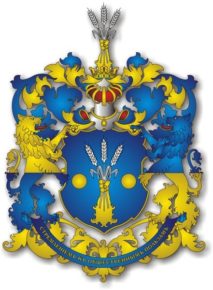The Many Faces Of Russia:
LORDS OF THE FLIES
Part 2:
From Stalin and Hitler to Putin.
The modern rise of Russian NeoNazi Bolsheviks. And a toxic mix of fascism, nazism and radical communism.

The 20th century bore witness to some of the darkest periods in human history, with two of its most infamous figures being Joseph Stalin and Adolf Hitler. Stalin, the leader of the Soviet Union, and Hitler, the dictator of Nazi Germany, were responsible for the deaths of millions of people during their respective regimes. Surprisingly, in modern Russia, there are still misconceptions and attitudes that surround the love and worship of these tyrants. This article delves into the complex relationship between the Russian people and their historical reverence for Stalin, as well as the disturbing fascination with Hitler.
The Russian Dilemma – Stalin’s Legacy
Stalin, once a prominent figure in Soviet history, continues to be a polarizing figure in Russia today. Many Russians have mixed feelings about him, which are often fueled by nostalgia and a perception of a strong, stable past. Some argue that Stalin’s leadership during World War II was crucial in defeating the Nazis, and this sentiment has contributed to a certain level of admiration.
Historical Context
To understand Russia’s love and worship of Stalin, one must consider the historical context. Stalin led the Soviet Union during a period of great upheaval and transformation. His ruthless tactics, including the Great Purge, led to the deaths of millions of people. However, his leadership during World War II is often credited with turning the tide against Nazi Germany.
Nostalgia and Stability
One reason for the lingering affection for Stalin is the perceived stability of the Soviet era. Many Russians remember the period as a time when the country was a global superpower. This sense of nostalgia for the past can cloud judgments about the human rights abuses and atrocities committed during Stalin’s rule.
Hitler’s Influence in Russia
The fascination with Hitler in modern Russia is a disturbing phenomenon. While he is universally condemned in most parts of the world, there is a small but vocal group in Russia that seems drawn to him. This page explores the factors contributing to this unsettling attraction.
The Rise of Far-Right Movements
In recent years, Russia has seen the emergence of far-right and nationalist movements that have embraced elements of Nazi ideology. These groups often look to Hitler as a symbol of strength and dominance, particularly in their opposition to Western liberalism.
Historical Revisionism
Some Russians have engaged in historical revisionism, attempting to downplay or even deny the extent of Nazi atrocities. This revisionism can contribute to a distorted view of Hitler’s actions and intentions.
The Battle of Memory
Russia’s love for Stalin and fascination with Hitler have given rise to a battle of memory within the country. This section examines the competing narratives and their implications.
State-Sanctioned Revisionism
The Russian government, under President Vladimir Putin, has been accused of selectively revising history to portray the Soviet Union and Stalin in a more positive light. This includes downplaying Stalin’s crimes and emphasizing the Soviet role in defeating Nazi Germany.
Opposition and Dissent
Despite state-sanctioned narratives, there are voices of dissent within Russia. Activists, historians, and human rights advocates continue to speak out against the glorification of Stalin and the fascination with Hitler. They argue for a more nuanced understanding of history.
The International Perspective
It is essential to place Russia’s attitudes toward Stalin and Hitler in an international context. This section explores how the world views these issues.
Global Condemnation
Internationally, there is widespread condemnation of both Stalin and Hitler. The atrocities committed during their regimes are well-documented, and most nations have made efforts to remember the victims and prevent a resurgence of totalitarianism.
Diplomatic Tensions
Russia’s revisionist tendencies and historical narratives have strained its relations with other countries, particularly those in Eastern Europe that suffered under Soviet rule. The glorification of Stalin can be a point of contention in international diplomacy.
Consequences and Implications
The love and worship of Stalin and fascination with Hitler in Russia have significant consequences and implications for the country’s society, politics, and global standing.
Polarization and Division
These attitudes contribute to political polarization within Russia. They also create divisions between Russia and other nations, hindering cooperation on various global issues.
Erosion of Historical Truth
The revisionist tendencies in Russia can erode historical truth, making it challenging to confront the past honestly and learn from history’s mistakes.
Conclusion
In conclusion, Russia’s love and worship of Stalin and the fascination with Hitler are complex and deeply rooted phenomena. They are influenced by historical context, nostalgia, and political manipulation. These attitudes have consequences that extend beyond Russia’s borders, affecting international relations and the pursuit of historical truth. It is crucial for Russia to engage in open and honest discussions about its past to move forward and build a more inclusive and peaceful future.
